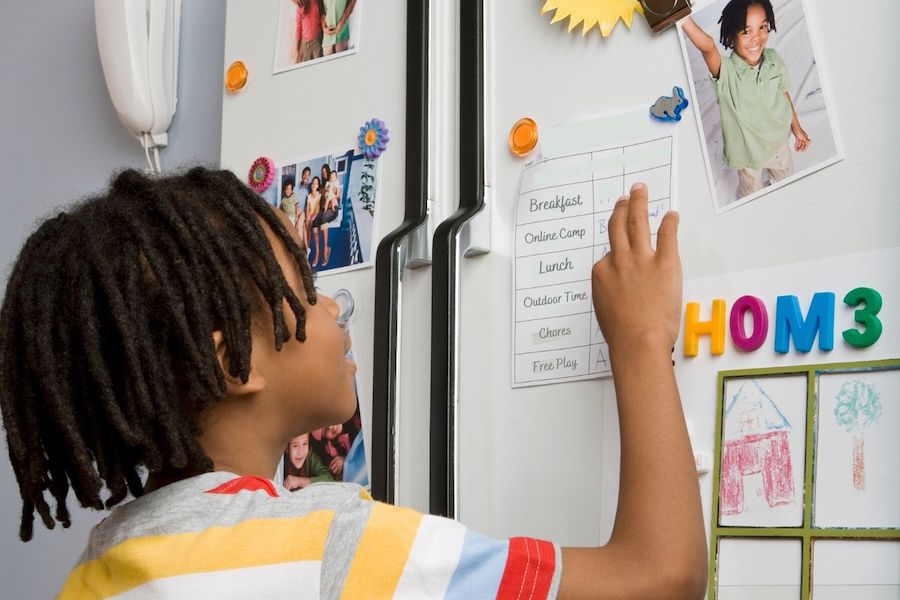Decades of research tell us that routines are good for kids. They create boundaries for eating, sleeping and activity, set expectations, and help children feel in control and safe.
As families continue to spend more time at home due to the pandemic (especially during summer vacation), it’s becoming increasingly important for kids to function within a framework of routines. This recent study highlighted the potential negative effects of a loss of routines for children during the pandemic, including unhealthy eating habits, lack of physical activity, and weight gain.
Normally, of course, school and summer camps help parents maintain daily routines, but this year many find themselves trying to juggle “Camp Mom/Dad” with their regular responsibilities – and maybe even working from home. We know this is stressful! And you might be thinking, great, one more thing to worry about. But routines can actually reduce stress, because they can create a sense of normalcy during a decidedly abnormal time.
Tips for Building Routines
Allow for flexibility! We’re saying this first, because this is the key to reducing stress around routines. The idea is to do similar things at similar times each day. If your kids go to bed a little later one night, that’s okay! If they combine lunch and dinner one afternoon, also okay. Extra screen time here and there… you guessed it. It’s ongoing, erratic sleeping, eating and activity that could become problematic.
Pay special attention to eating and sleeping. One of the points the authors of the abovementioned study made was that a lack of structure around eating can lead to eating more (sometimes a lot more) than usual. Try keeping similar meal and snack times. When it comes to sleep, both sleeping less and sleeping more can be dysregulating for children. Set a general bedtime, and keep an eye on habitual oversleeping, too.
Prioritize physical activity. This is a big one. The American Heart Association recommends daily active movement for all children in order to promote bone health, mental health, physical fitness, optimal brain function and attention, and healthy weight.
Here are few ways you can keep your kids active:
- Family walks, jogs or bike rides.
- Online movement classes for kids.
- Swimming, if you have access to water suitable for swimming.
- Backyard or park sports (if you can maintain social distance with others outside of your family).
Consider in-person camps or online programs. Although many summer camps were cancelled this year, some are up and running with safety protocols in place. There are also plenty of online programs, like this that you can try. For children with special needs, this is a helpful list of options.
Keep up with teletherapy. If your child has special needs, teletherapy is a great thing to add to your routine. In fact, while we’re happy to slowly welcome children in person again, we’ve been surprised by how effective virtual therapy can be!
Post your routine. Visual reminders can be helpful for all of us, especially kids. For readers, a written routine works well. For non-readers, you can simply draw pictures of the daily routine. Being able to look at it helps children feel secure, because they know what’s coming next. Over time, it also builds children’s independence as they start to follow it on their own.
One more time: Be flexible. We’re going to end with this one, too. Think a general sense of sameness rather than a rigid schedule. Allow for off days, re-dos, and even overhauling the entire routine altogether if you need to.
Wishing you a continued safe summer!


Recent Comments